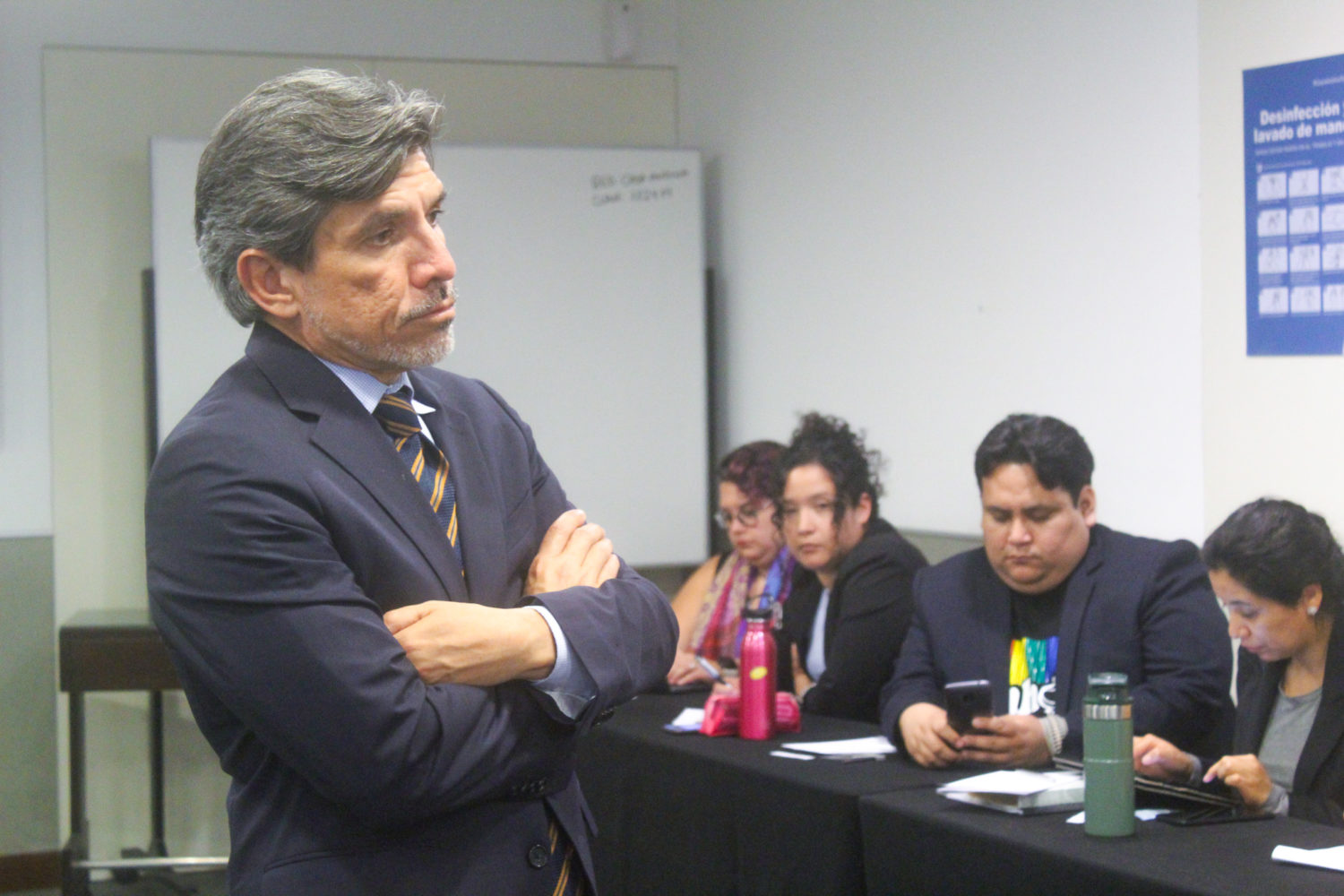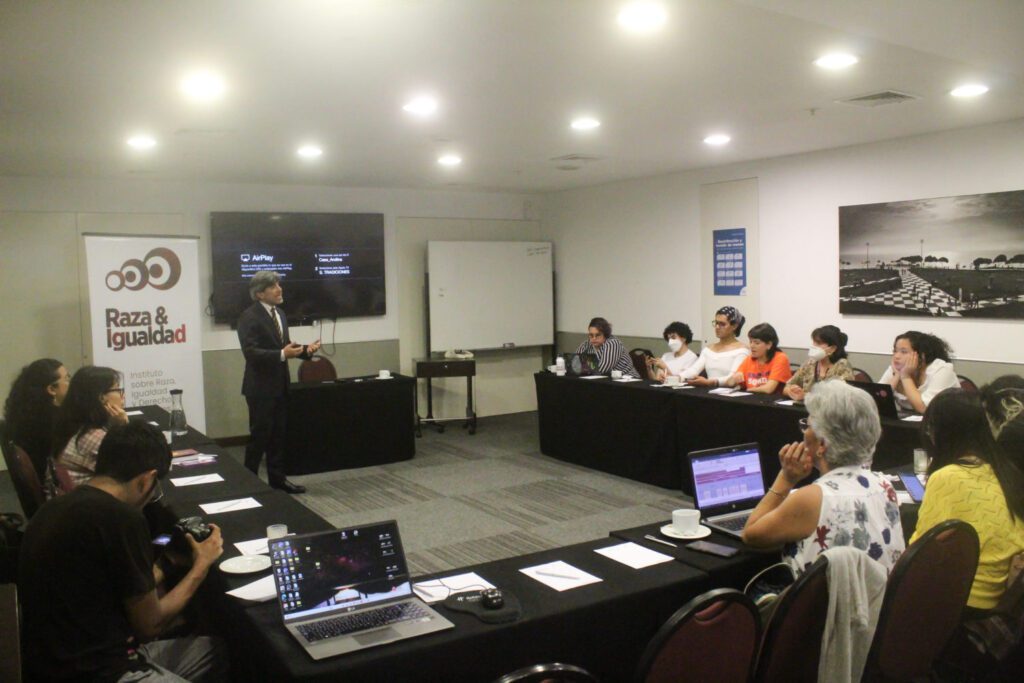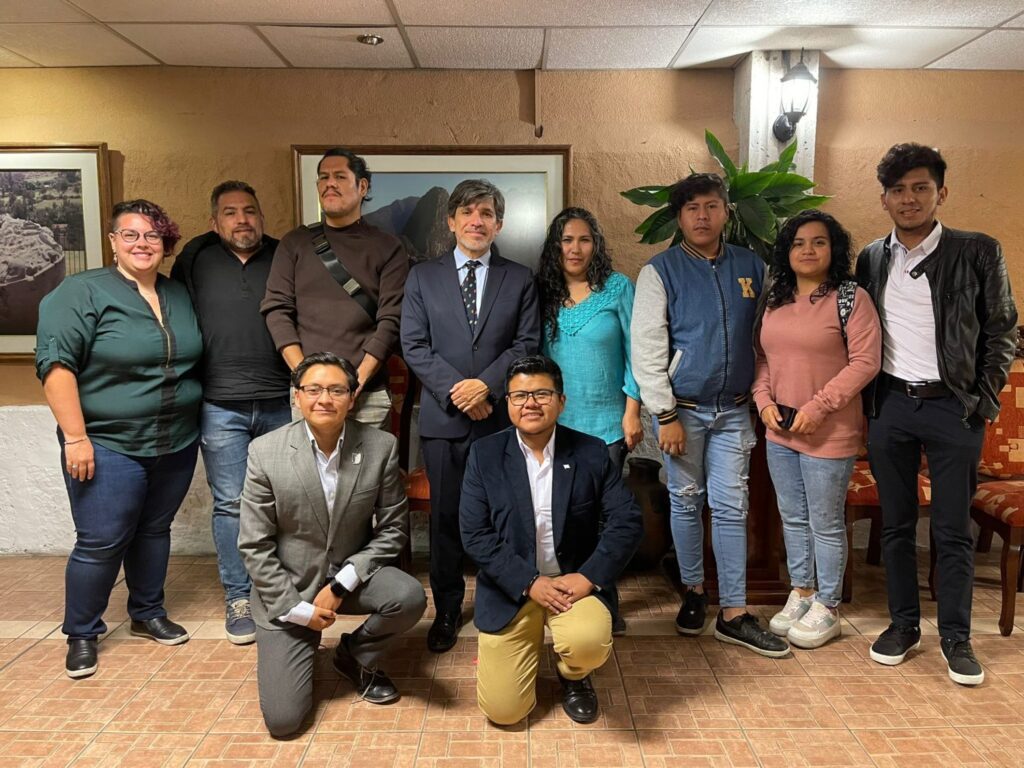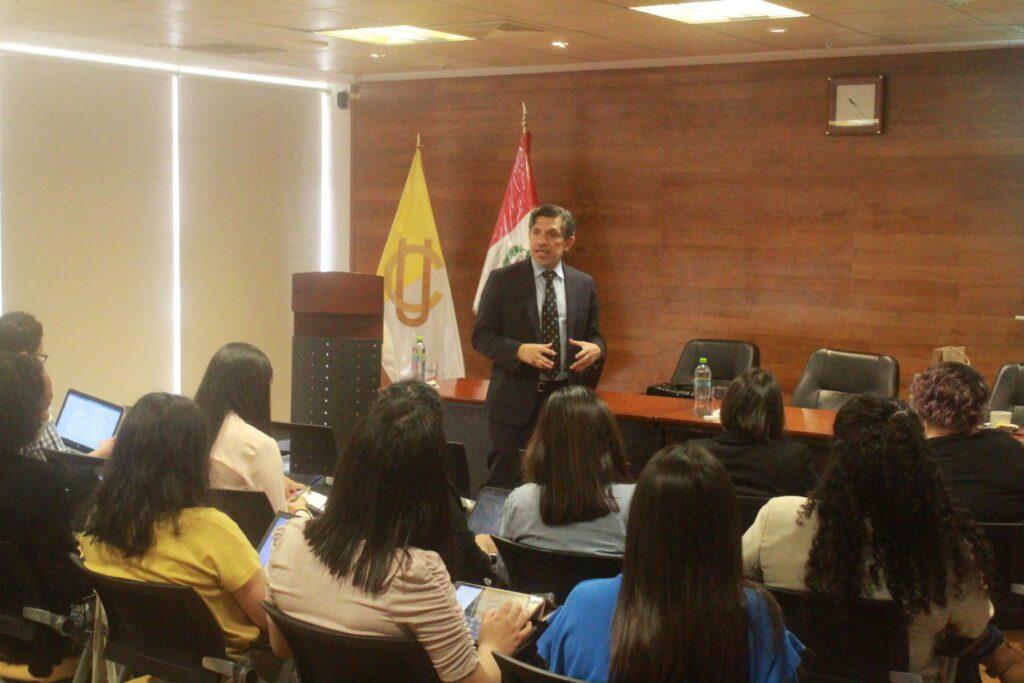The Independent Expert on Sexual Orientation and Gender Identity Visited Peru with the Support of Race and Equality
The UN Independent Expert on Sexual Orientation and Gender Identity met with State authorities, students, and LGBTI+ organizations from two regions of Peru to promote his mandate. From November 21 […]

The UN Independent Expert on Sexual Orientation and Gender Identity met with State authorities, students, and LGBTI+ organizations from two regions of Peru to promote his mandate.
From November 21 to 26, the IE SOGI, Victor Madrigal-Borloz, held a promotional visit in Peru, which was carried out with our Senior LGBTI Program Officer, Zuleika Rivera, along with the support of the Institute on Race, Equality, and Human Rights (Race and Equality).
During his visit, Mr. Madrigal-Borloz met with various State authorities, university students, and LGBTI+ human rights organizations from Arequipa and Lima, Peru. The purpose of this trip was to provide information on 1. The functions of the mandate and 2. The mandate’s critical support in effective sate measures to address SOGI-based violence and discrimination.

The United Nations Independent Expert on Sexual Orientation and Gender Identity, Victor Madrigal-Borloz, in one of the meetings with LGBTI+ organizations in Lima, Peru.
It is worth mentioning that the SOGI mandate was created in 2016 thanks to the advocacy work of a group of civil society organizations worldwide. Through the mandate’s creation, the UN Human Rights Council affirmed its commitment to combat discrimination and violence on the grounds of SOGI and reminds all States of their obligations towards LGBTI+ and gender-diverse persons. To learn more about the work of the mandate and access its reports, visit the official website.
Dialogue with civil society
Arequipa was the first stop for the IE SOGI. There representatives of transmasculine, lesbian, and gay organizations highlighted the issues they face due to their sexual orientation and gender identity in the region, as well as the stigmas towards LGBTI+ persons that are generated from conservatism.

The United Nations Independent Expert on Sexual Orientation and Gender Identity, Victor Madrigal-Borloz, at the meeting with LGBTI+ organizations in Arequipa, Peru.
In addition, four thematic meetings were held in Lima: a) Discrimination, b) Violence, and Access to Justice; c) Data; d) Health and Comprehensive Sex Education; e) and Gender Identity. These meetings incorporated dialogues with various LGBTI+ individuals and organizations. Peru is one of the countries within the Andean region that does not have a gender identity law, so there is no administrative procedure that facilitates legal name change nor the “sex” category in the National Document of Identification (DNI).[1]
On the contrary, trans people must litigate through the courts against the National Registry of Identification and Civil Status (RENIEC), which constantly appeals favorable resolutions that are in accordance with the human rights of trans people. You can watch the interview that Race and Equality conducted with Bruno Montenegro on the subject.
In turn, the same entity refuses for Jenny Trujillo and Darling Delfín, a lesbian couple, to get their child an ID that registers two mothers on the identification document; learn more here. Regarding discrimination and violence against LGBTI+ persons, the State’s registration systems do not include sexual orientation and gender identity categories, as a consequence there is no database with disaggregated records that account for the number of LGBTI+ persons violated.
Juveniles and the law
The UNICXS Legal Office —a project of the Academic Office of Social Responsibility in Peru’s Faculty of Law at the Pontificia Universidad Católica del Perú that offers free legal advice in cases of discrimination based on sexual orientation and gender identity— invited Victor Madrigal to give a workshop to discuss his mandate, the criminalization of LGBTI+ people around the world, and the task of guaranteeing the human rights of all people.

The United Nations Independent Expert on Sexual Orientation and Gender Identity, Victor Madrigal-Borloz, at the workshop for members of the Unicxs Legal Clinic, of the Pontificia Universidad Católica del Perú, in Lima.
Moreover, the IE SOGI also met with various Peruvian State authorities, including the Peruvian Foreign Minister, Cesar Landa, and the Congresswoman of the Republic, Susel Paredes.
Race and Equality, reaffirms support for the mandate of the Independent Expert in order to contribute to the visibility and respect for the rights of LGBTI+ persons. In this sense, it will continue to promote its visits to the countries of the region so that LGBTI+ activists and groups learn about the work of the mandate and collaborate with its documentation and analysis actions.
______
[1] The DNI, Documento Nacional de Identidad, is the Peruvian version of an ID card. It’s the only personal identity card recognized by the Peruvian State for all cases (civil, commercial, administrative and judicial) in which a person has to identify themselves.

